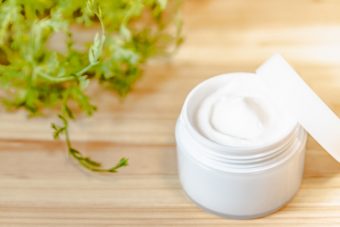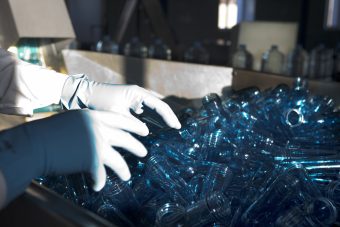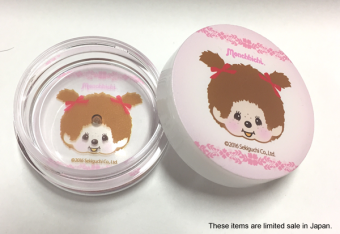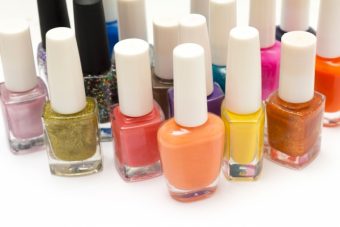As cosmetics that are daily being consumed by a lot of people are products to be directly applied to your skin, factories to manufacture them without rigorous safety / quality controls will be deemed problematic.
This document will focus on operations / tasks undertaken in factories that manufacture cosmetics and how they are implementing such rigorous quality controls.
Factories of OEM company
 OEM makers are consignees of manufacturing products with another company’s brand; there are factories of such OEM makers in the field of cosmetics. This is because it requires to overcome high hurdles such as investment in facilities or legal procedures to manufacture cosmetics in one’s own facility, with the need of such consignment arising.
OEM makers are consignees of manufacturing products with another company’s brand; there are factories of such OEM makers in the field of cosmetics. This is because it requires to overcome high hurdles such as investment in facilities or legal procedures to manufacture cosmetics in one’s own facility, with the need of such consignment arising.
Japanese cosmetics are nowadays highly reputed internationally, with various makers intent on starting up their businesses overseas as well as OEM makers. Some makers are trying to support exporting with their manufacturing base left in Japan or have a policy to accelerate transactions with overseas makers.
Works in cosmetics factories are divided into manufacturing, checking, etc.
This document then will explain the contents of works done in such factories, which are chiefly comprised of “manufacturing”, “inspection / checking” and “packaging (into boxed)”.
Manufacturing line controlled by machine operators.
 Machine operators engage in the operation to control and repair manufacturing machines, which requires knowing machines they are in charge of well and abilities to deal with various troubles. While it just takes setting materials and pushing buttons to control such machines, they need to be able to handle troubles that may occur when machines occasionally get out of control or even stop. Such machines enable precise manufacturing of many of small products too complex to be made manually.
Machine operators engage in the operation to control and repair manufacturing machines, which requires knowing machines they are in charge of well and abilities to deal with various troubles. While it just takes setting materials and pushing buttons to control such machines, they need to be able to handle troubles that may occur when machines occasionally get out of control or even stop. Such machines enable precise manufacturing of many of small products too complex to be made manually.
Manufacturing lines in such factories are divided into “concoction equipment” that concocts ingredients and “packing equipment” that packages them one by one. The concoction equipment concocts products such as lotions (ordinary / milky ones) and creams and temporarily keeps them in preserving tanks, which in turn will be sent to the packing equipment through funnels.
 The packing equipment has lines that fill bottles with liquid cosmetics such as shampoos and conditioners, with different machines fitted to various shapes / designs. Other lines are also allocated to cream- / tube-type products with some machines with capping fully automated, some putting stickers very rapidly and accurately.
The packing equipment has lines that fill bottles with liquid cosmetics such as shampoos and conditioners, with different machines fitted to various shapes / designs. Other lines are also allocated to cream- / tube-type products with some machines with capping fully automated, some putting stickers very rapidly and accurately.
Operations in inspection / checking are accurately checking defects of products.
Operations in inspection / checking are to check whether there are any defects in finalized products. As doing so only by machines may entail a possibility to overlook ones with defects, this process will be finished with checking by human operators.
It is important as products will circulate in the market right after this process. There are various items to check depending on products such as whether there are dirt / damages or leakage in the bottle.
 Quality control is especially important in cosmetics factories. Various tests on safety / stability will be implemented before getting to the actual manufacturing stage; samples will be finally completed after evaluation of functionalities; moreover, most factories will implement such tests even after shipping of them by keeping the same products, not just before shipping.
Quality control is especially important in cosmetics factories. Various tests on safety / stability will be implemented before getting to the actual manufacturing stage; samples will be finally completed after evaluation of functionalities; moreover, most factories will implement such tests even after shipping of them by keeping the same products, not just before shipping.
Such inspections are on whether ingredients / materials sourced in the stage of manufacturing tightly fit the planning made and whether there are any problems around the outlook / scent / usability, etc. of the products manufactured. In operations to pack, among all, as problems such as adulteration may occur, staff will check them in the sterilized state.
Even into the stage of shipping, inspectors will tightly implement random-sample checks right before shipping. Furthermore, even after shipping, various divisions such as one for quality control will keep the same products to check their stability or quality, etc. and try to thoroughly ensure their quality, an important process as a problematic quality may lead to a damaged credibility of the company.
Product will be finally shipped to the market upon completion of packaging / packing.
Cosmetics factories will next put the products that have cleared such inspection / checking into boxes and finally ship them out, which include various tasks depending on products such as just putting them into a box, doing so with a manual attached, or putting several into a cardboard box.
Conclusion
This document has explained the contents of works done in cosmetics factories in Japan.
As quality and safety are especially important for cosmetics, manufacturing of them are divided into many a process such as checking, etc. Cosmetics OEM factories in Japan not only manufacture products based on intended product concepts but also take a rigid responsibility for their quality in manufacturing.
Not all the factories in Japan have adopted these methods.
Employees in charge of each of such procedures are all the time trying to come up with ways to improve the quality of the products in our comapny.


